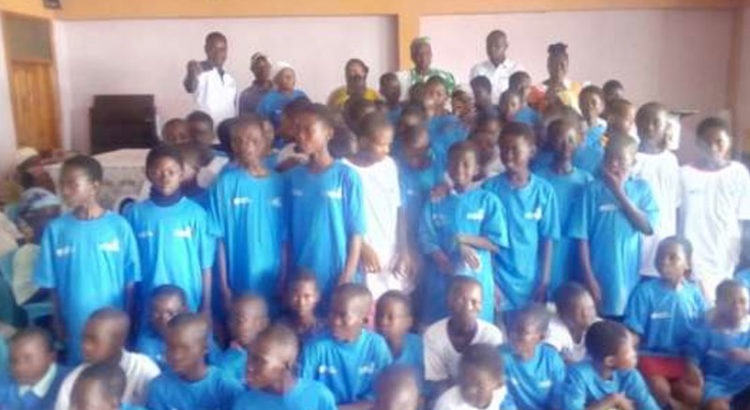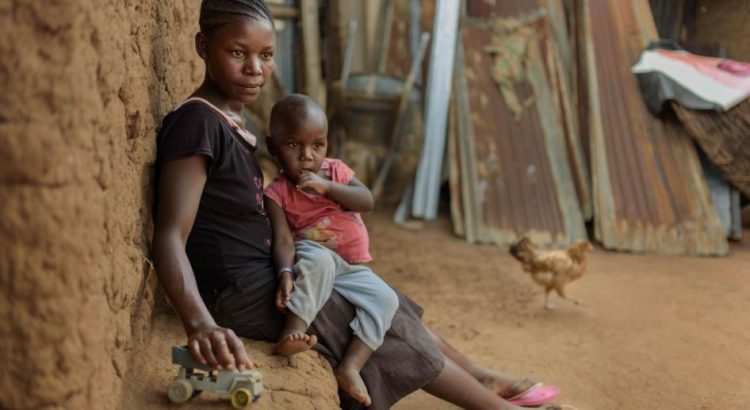By: Dr. Amrita Vohra.
According to the Census of India, the rural literacy rate still stands at just 69 percent, which is far below the world average of 86 percent
With the ever-growing population of the country, the future of India promises to be exciting. Youth has the largest share in the demographics of India, and that makes education the most vital sector for India.
When we talk about education, one can’t help but think and bemoan at the current state of primary education in the country. Primary education forms the most basic stage of formal education that is preceded by preschool. It gives children a basic understanding of various subjects.
It is at this stage that India lags behind, especially in rural areas, where the level of literacy among adults is poor. According to the Census of India, the rural literacy rate still stands at just 69 percent, which is far below the world average of 86 percent.
However, all of these promises to change in the coming years. With the advent of technology, the process of teaching, as well as learning, is bound to become more interesting and practical. Of course, there are cons to it as well, but use technology the right way and there’s nothing that one cannot achieve.
The future isn’t just limited to technology, though. Yes, it will revolve somewhere around technology, but there’s more to it than just that. Let’s take a look at some of the future trends that will shape the primary education in India –
Use Of Technology At Teaching Level
Generation Z is so much into technology these days that education can’t help but involve technology in some form or the other. Global Indian International School, Chinchwad, is one of the top schools that work in tandem with the latest and innovative practices introduced through technology.
Smart classes are one of the latest developments taking place in primary school, especially in urban areas. Google Classroom is an extremely popular tool that is used in Global Indian International School, Chinchwad from class 5th onwards.
3D printing is another technology that is expected to take earning to a new level. It helps to give shape and form to the imagination of young, creative minds. Creating real-life models gives influx to creativity.
Virtual reality (VR) is another aspect of technology that we cannot overlook. Just like 3D printing, it gives a more real-life experience to students. Chinese philosopher Confucius once said, “I hear and I forget. I see and I remember. I do and I understand.” VR thus helps in enhancing the classroom experience of a child.
Revival Of Indian Languages
India is a land of ‘linguistic pluralism’ or in simple words, a large number of languages are spoken in India. A few years back, Sanskrit was a part of the Indian education system, alongside Hindi or other similar local languages.
In recent years, we’ve seen Indian schools aspiring to compete on an international level. Competing at the international level requires knowledge of a language that goes across geographical borders to bring people on a common platform. In this race to become internationally acclaimed, Indian languages have been compromised upon.
However, Indian languages will continue to play a role in primary education of the country. Hindi still remains the 3rd most widely spoken language in the world and one cannot overlook its importance.
At Global Indian International School, Chinchwad, there is a usage of Hindi even in their flagship events. An entire show is compeered with impeccable articulation in Hindi and I take great pride in sharing that my students are well trained in the language and have won accolades in competitions at inter-school, state and national level.
Ed-Tech Startups
India is the third-largest startup ecosystem in the world. Not all of them succeed, of course. In fact, according to a study by IBM Institute for Business Value, 90 percent of Indian startups fail within the first five years and the most common reason is lack of innovation.
That being said, there are many edu-tech startups in the country currently that are changing the landscape of the education sector. By offering online courses and other means of e-learning, starting right from pre-school, these startups will play a dominating role in the industry’s future.
Khan Academy, even though not Indian, is a popular e-learning startup that offers a variety of online tools to educate students. Udemy is another foreign startup that offers similar services.
Keeping in mind the fascination of kids towards technology, edu-tech startups are here to stay.
One-To-One Mentoring
While the number of students is constantly increasing, the number of teachers aren’t increasing at the same rate. What this means is that the student to teacher ratio is falling constantly.
However, mentoring is a concept that is going to play a major role in primary education in the future. Mentorship may not necessarily be a relationship between a teacher and a student. It may exist between a senior and a junior as well. Whatever may be the form, mentorship concept is something that will shape primary education in the future, especially when the teacher may be short in number.
Multiple research studies document the social and emotional benefits that school students receive through mentoring programs (Komosa-Hawkins, 2012).
Fewer Dropouts As Literacy Rate Among Parents Increases
Literacy is an enormous tool that decides the fate of not just the individual but of the nation and the world at large. Primary Indian schools in rural areas have been facing dropout problems for years. The main cause of this problem is the poor literacy rate among parents. They don’t value their child’s education as much as they value their daily income, which is why they prefer sending their children to farms rather than schools.
It is extremely important to keep elevating the rate of literacy. Global Indian International School, Chinchwad believes that parents are the ambassadors who will create awareness about literacy. It has a program called ‘Individual Development Plan’ that is charted for each child in partnership with the parents. It sets a goal which is not just restricted to academics but touches the horizons of extra-curricular as well.
As the literacy rate continues to elevate, we will produce well-educated individuals and see lesser number of children dropping out of primary education.
Skill-Based Education or Vocational Education
According to a recent study, 65 percent of today’s grade school kids will end up at a job that hasn’t been invented yet. These jobs are primarily going to be focusing on the skill set which will be the need of the hour. It has been stated in various talks that academic prowess is losing its magnitude in comparison with human virtues. People management, teamwork, compassion are now being looked upon as important skills.
Thus, skill-based education is going to be the way to go in the future. At Global Indian International School, Chinchwad, there is a wide array of 21 hobby clubs for students to choose from, which helps them to enhance their intrapersonal and interpersonal skills. Such clubs are important in helping the children learn new skills and discover within themselves the hidden talents that they may possess.
As mentioned earlier, education is an exciting space that promises to deliver in the future. Technology is going to bring a revolution in the education sector and thus produce more employable youngsters in the future.
Source of the article: http://www.businessworld.in/article/Future-Trends-That-Will-Shape-Primary-Education-In-India/09-03-2019-167796/










 Users Today : 54
Users Today : 54 Total Users : 35403247
Total Users : 35403247 Views Today : 76
Views Today : 76 Total views : 3332515
Total views : 3332515